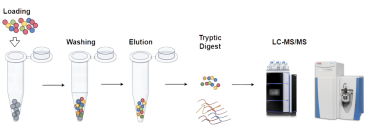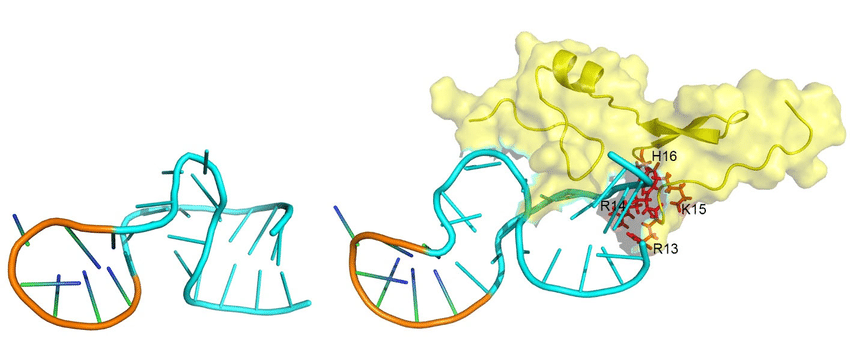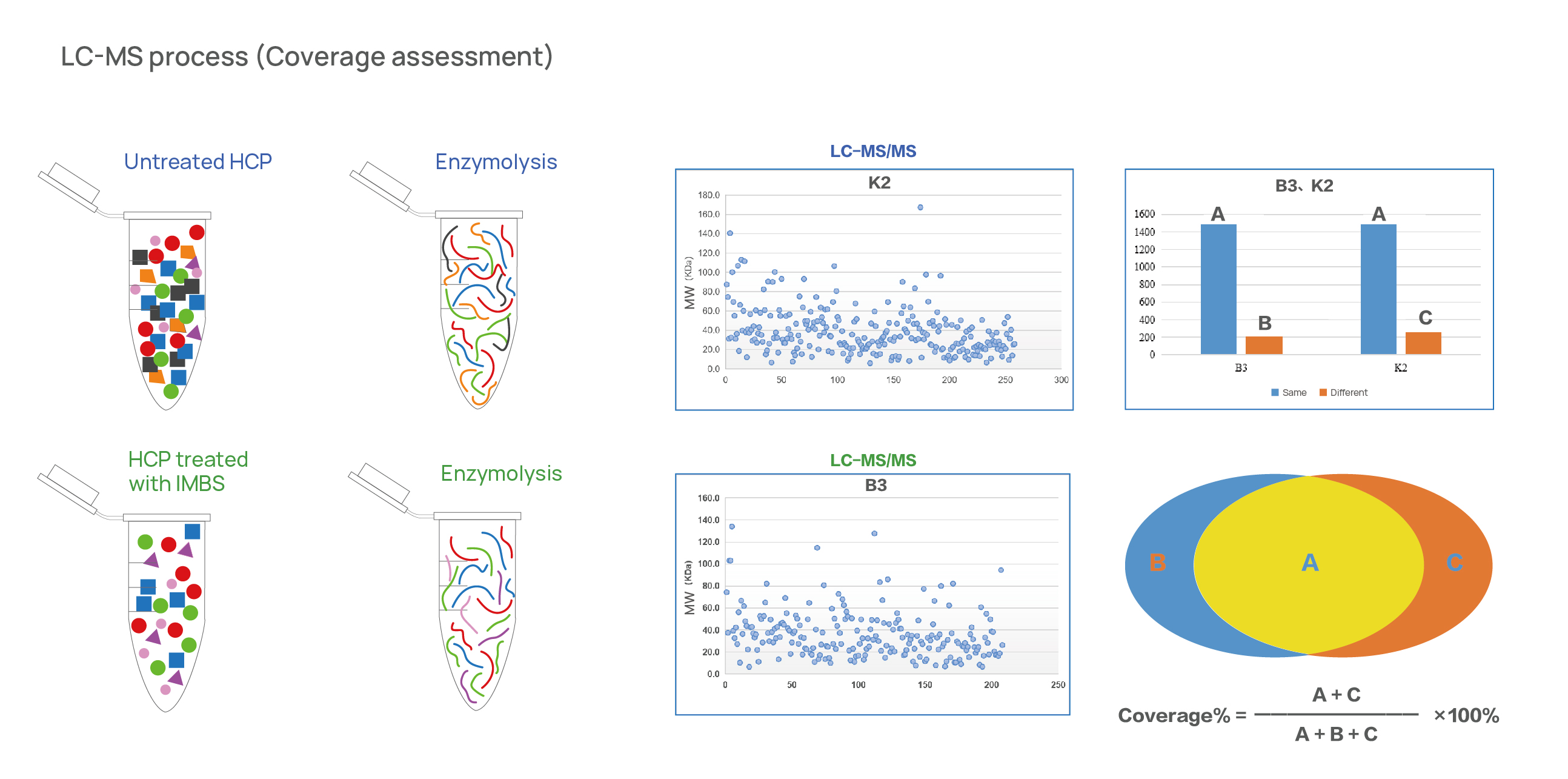The Liquid Chromatograph Mass Spectrometer (LC-MS) is a key orthogonal detection technique for proteins. By combining the separation capabilities of liquid chromatography with the high resolution of mass spectrometry, LC-MS recognizes a wide array of proteins at varying levels, which achieves greater sensitivity and accuracy in protein identification and quantitation in various biological products, compared to traditional ELISA assays.
The LC-MS platform employs reliable protein sample preparation methods for various biological products, providing a comprehensive mapping and quantitation service for cell-derived proteins using validated databases and bioinformatics technology. SHENTEK delivers customized reports with actionable recommendations from concept to outcome.
Extraction of protein mixture or purification from biological samples,
Protein concentration determination (e.g., BCA or Bradford assays),
Proteolytically cleaved by proteases (trypsin & lys-C typically),
Protein fragments analyzed by LC-MS/MS,
Analysis of MS data files through database search and bioinformatics programs.


We have validated large coverage of proteins for different engineered cell lines like CHO-K1, CHO-S, Vero, HEK293, HEK293T, Sf9, BHK, E.coli, Pichia, S. cerevisiae, etc., for example, validated coverage of up to 7000 proteins for CHO cells.
We have validated workflow from study design to analysis report. For data analysis, SHENTEK currently employs two approaches - data-dependent acquisition (DDA) and data-independent acquisition (DIA) with AI learning in proteomic analysis, to gain a higher precision and better reproducibility for targeted or unknown analysis in complex mixtures over a large dynamic range.
Protein species identification to assess protein origin through species-specific peptide markers.

Characterization & Quantitation of high-risk HCP antigens for quality control of in-process samples and final products.

HCP Antibody coverage analysis to select suitable ELISA for the specific bioprocess control.
